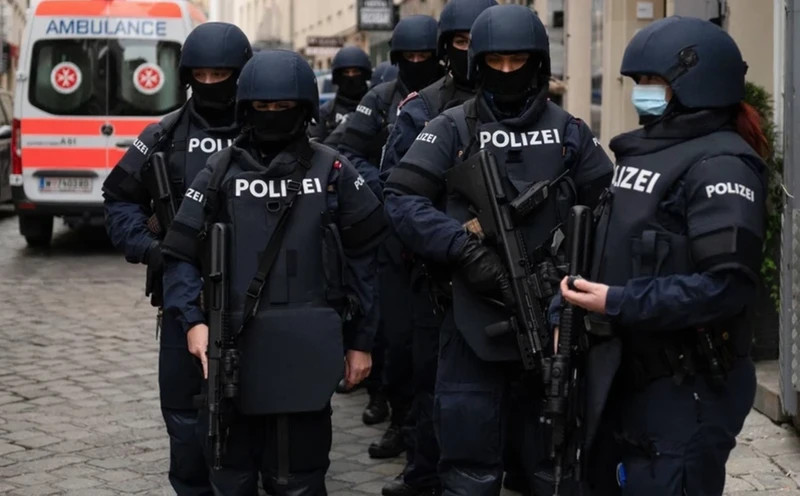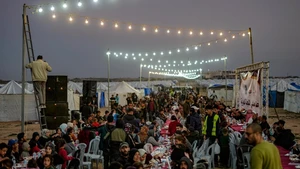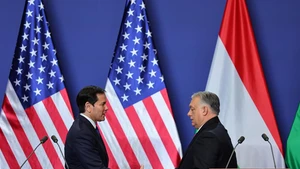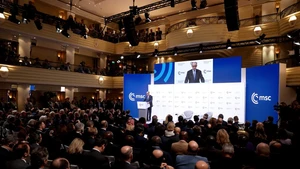German police recently said that a Syrian man had turned himself in and confessed to carrying out a stabbing attack in the western German city of Solingen, killing three people and injuring eight others. The incident shocked Germany, as the attack occurred as thousands of people gathered to participate in cultural activities within the framework of the Multicultural Festival to celebrate the 650th anniversary of the founding of the city.
The suspect in the attack lived in a facility for refugees in Solingen. It has also been claimed that a member of the terrorist organisation carried out the knife attack to avenge Muslims everywhere. The influx of refugees fleeing conflicts in the Middle East and Africa into Europe is causing unpredictable consequences for the Old Continent. The German Federal Criminal Police Office (BKA) has warned that the risk of violent acts involving Islamic jihadists in the country is high.
Existing terrorist threat
EURO 2024 and the Paris Olympics have ended, but the security situation in the region is still considered unstable. The French Interior Ministry recently announced that the country's police have arrested a suspect who set fire and caused an explosion at a synagogue in the southern resort town of La Grande Motte, in what authorities said could be a terrorist attack. Security cameras captured images of the suspect burning two cars outside the synagogue and causing an explosion.
French President Emmanuel Macron called it a terrorist act and affirmed that the authorities have taken all necessary measures to arrest the suspect. Acting French Prime Minister Gabriel Attal also visited the scene of the incident with Interior Minister Gerard Darmanin. Following the incident, security was tightened at many Jewish sites in France, in the context of the weekly Jewish Sabbath, with some activities gathering crowds at synagogues.
Meanwhile, it is noteworthy that three performances by singer Taylor Swift scheduled to take place in Vienna (Austria) in mid-August were cancelled after Austrian authorities announced that they had arrested several suspects planning terrorist attacks targeting the event.
After the Taylor Swift concerts were cancelled due to the risk of terrorism, German Federal Interior Minister Nancy Faeser and the country's Office for the Protection of the Constitution said that the threat of Islamic terrorism in Germany remains high. German authorities are using all legal tools to prevent the terrorist threat. Since the escalation of the conflict in Gaza, IS and its affiliates have increased their influence and supported lone actors, also known as "lone wolves", small groups planning terrorist attacks on the internet.
The Austrian Interior Ministry announced late last month that Austrian authorities had dismantled a terrorist network linked to fundraising for IS and arrested nine suspects. Austrian security forces searched many houses in five states in the country, seizing many mobile phones, laptops, data storage devices, large amounts of cash, and vehicles of suspects planning terrorist attacks.
The rising risk of IS
With about 30 arrests related to extremist Islamists made in Europe since the beginning of this year, the risk of terrorist attacks is becoming a serious threat to regional security. Christian Dussey, Director of the Swiss Federal Intelligence Service (FIS), recently said that the threat of terrorist attacks in the country will increase from the beginning of 2024.
Referring to IS's call for terrorist attacks in Europe, the FIS Director said that IS had not carried out such acts for a long time, so the call had actually "created new momentum" for its supporters and spread on social media platforms. According to him, the risk of an attack in Switzerland could be isolated acts of violence and the type of elements inspired by calls for jihad.
In August 2023, the Swedish Security Service raised the terror threat level to level 4 on a five-level warning scale, after the burning of Koran copies in the country increased tensions with Muslim countries, increasing the risk of domestic terrorist attacks.
European countries have closely coordinated and improved their anti-terrorism capabilities, but conflicts leading to a wave of illegal immigration into Europe continue to pose major challenges, causing the continent to have a headache with the "security problem".
Swedish Justice Minister Gunnar Strommer said that in 2024, shootings in Sweden decreased and activities to fight and dismantle violent criminal groups were strengthened compared to the previous year. However, the crime situation remained complicated, with many serious shootings related to gangs.
IS was defeated by US and allied forces in the wars in Iraq and Syria, but the threat from this terrorist organisation is always present. The situation became more worrying when the conflict in the Middle East broke out in October 2023, increasing the risk of terrorist activities in Europe.
European countries have closely coordinated and improved their anti-terrorism capabilities, but conflicts and waves of illegal immigration into Europe continue to pose major challenges, causing the continent to have a headache with the "security problem", in the context that IS can take advantage of the current instability in the Middle East to rise at any time.
















